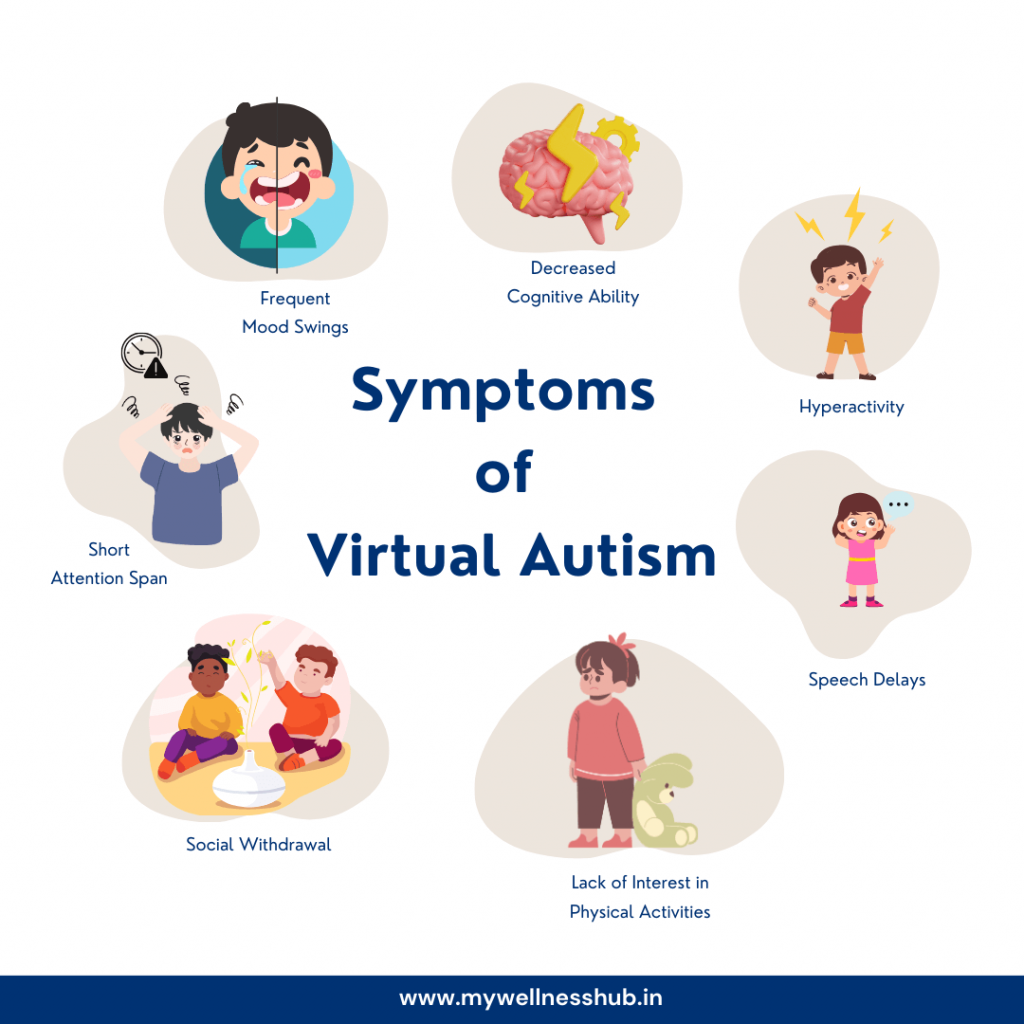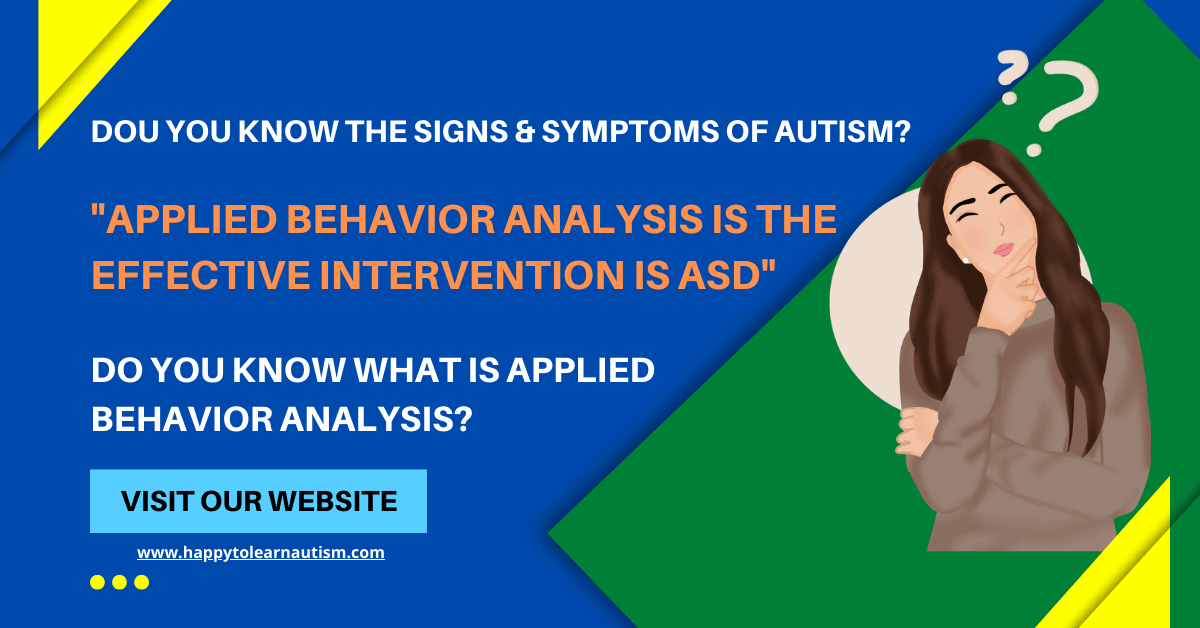Are daily disruptions a sign to talk to an local Aba Therapist?
Are daily disruptions a sign to talk to an local Aba Therapist?
Blog Article
Understanding the Influence of Behavioral Autism on Life and Social Communications
You may not recognize exactly how deeply behavioral autism affects every day life and social interactions. People on the range commonly browse a globe filled with communication obstacles and sensory overload. These difficulties can bring about irritation and seclusion, influencing their connections and general well-being. Recognizing these nuances is vital for promoting encouraging environments. What techniques can we execute to create more inclusive areas and meaningful connections? The solutions may shock you.
Specifying Behavior Autism and Its Qualities
Behavioral autism, often referred to as autism range disorder (ASD), includes a series of problems characterized by obstacles in social communication, communication, and repeated behaviors. You might see that people with ASD often battle to translate social cues, which can bring about misunderstandings in conversations. They might discover it tough to develop eye get in touch with or engage in little talk, making social circumstances feel frustrating.
Communication difficulties can materialize in different means, from postponed speech development to a choice for using fewer words. By recognizing these traits, you can cultivate an environment that promotes approval and urges effective interaction, helping people with autism thrive in their daily interactions.
The Spectrum of Autism: Understanding Variability in Actions
Autism range disorder (ASD) isn't a one-size-fits-all medical diagnosis; it differs commonly among individuals. You might run into people that are extremely verbal and engage easily in conversations, while others may prefer solitary tasks or communicate non-verbally.
In addition, the method people with ASD respond to sensory input can vary considerably; some could be bewildered by brilliant lights or loud noises, whereas others thrive in boosting environments. The range likewise includes differences in social interactions; some people may battle to translate social signs, while others navigate social setups with family member ease. Recognizing this variability is necessary, as it helps you value each person's distinct experience and dressmaker support to their specific demands, fostering a much more inclusive environment for everybody.
Interaction Challenges Dealt With by Individuals With Autism
When you engage with individuals on the autism spectrum, you may see their distinct interaction obstacles. They usually deal with difficulties with both spoken and nonverbal hints, which can influence their social interactions. Comprehending these obstacles is important for promoting far better links and assistance.

Verbal Communication Problems
Lots of individuals on the autism spectrum experience verbal interaction problems that can considerably impact their day-to-day communications. Your volume, tone, or speed may not straighten with social expectations, creating others to misunderstand your intents. Identifying these challenges can assist you and your assistance network develop approaches to enhance interaction and promote better links with others in your everyday life.
Nonverbal Communication Obstacles
Verbal interaction isn't the only obstacle people on the autism range face; nonverbal interaction barriers can be simply as considerable. These obstacles can lead to misunderstandings or misinterpretations of social signs, making interactions really feel complex or overwhelming. By resolving nonverbal communication, you can locate techniques to boost your social experiences and improve your general quality of life.
Social Interaction Influences
Social interactions can frequently really feel overwhelming as a result of the unique communication obstacles faced by people with autism. You could battle with analyzing social cues, making it hard to comprehend sarcasm or body movement. This can result in misunderstandings or unpleasant moments in conversations. In addition, launching and preserving discussions might feel challenging, triggering anxiousness in social scenarios. You might prefer structured atmospheres, making spontaneous communications awkward. It's additionally common to experience difficulty in participating in little talk, which can prevent creating brand-new friendships. Acknowledging these challenges can assist you locate strategies to improve communication, such as practicing social skills in safe setups or utilizing visual help Full Article - Autism Spectrum Therapies. Understanding your demands permits you to navigate social interactions with greater confidence and ease.
Social Interaction and Partnership Building in Autism
While building partnerships can be challenging for individuals with autism, comprehending their unique viewpoints and communication designs can promote purposeful connections. You might discover that many individuals on the range choose straight communication and may deal with social cues or small talk. By being uncomplicated in your communications, you can help produce an atmosphere where they really feel comfortable.
Put in the time to observe and listen just how they reveal themselves. This understanding can direct you in guiding conversations much more effectively. Engaging in shared rate of interests can likewise function as a bridge to deeper links. Whether it's a pastime, a preferred program, or a shared interest, these common strings can open up doors to friendship.
Daily Life Routine: Navigating Approaches and difficulties
Steering everyday life regimens can be specifically testing for individuals with autism, particularly when unforeseen modifications take place. To navigate these difficulties, consider carrying out aesthetic schedules or lists.
Developing a routine that consists of sensory breaks can additionally be valuable. This helps develop an understanding setting.
Lastly, method mindfulness methods to take care of stress and anxiety and stress and anxiety. Simple breathing exercises or grounding strategies can make a substantial difference. By incorporating these methods, you can enhance your everyday routine and minimize disturbances, making life really feel much more manageable.
Staminas and Capabilities of Individuals on the Autism Spectrum
Recognizing daily life routines is just one aspect of the autism experience. Lots of people on the autism range have exceptional strengths and capabilities that establish them apart.
In addition, your memory abilities often shine, specifically in areas of rate of interest. Aba Therapist Near Me. This flair for retaining info can make you a useful source in fields like innovation, science, or art. You may also exhibit solid visual thinking, allowing you to picture intricate ideas and resolve troubles artistically
Furthermore, your unique point of view on the world can cultivate empathy and understanding in others, enhancing social interactions. Accepting these strengths not just increases your self-confidence but likewise aids others value the varied abilities you give the table.
Creating Comprehensive Settings for Individuals With Autism
Producing inclusive environments for individuals with autism starts with making sensory-friendly areas that provide to their special needs. You can likewise foster chances for social interaction, assisting to build connections and friendships. By making these changes, you'll add to a much more welcoming ambience for everyone.
Designing Sensory-Friendly Spaces
While designing read the full info here sensory-friendly spaces, it's crucial to reflect on the special demands of individuals with autism. Integrate quiet areas where individuals can retreat and reenergize when bewildered. Consist of visual timetables or clear signs to help individuals browse the room with confidence.
Promoting Social Communication Opportunities
Creating sensory-friendly spaces not just addresses individual comfort but also establishes the stage for significant social communications amongst individuals with autism. To promote these communications, create inclusive atmospheres that invite participation. Organize structured tasks, like art courses or team games, that encourage partnership Click This Link without frustrating sensory input. Usage visual help and clear interaction to help everybody engage pleasantly. Motivate peer mentoring, matching people with autism with helpful peers that can assist them with social situations. In addition, think about holding routine area occasions that commemorate neurodiversity, fostering acceptance and understanding amongst all participants. By applying these techniques, you can enhance social opportunities, aiding individuals with autism construct relationships and reinforce their social abilities in a risk-free, inviting atmosphere.

Frequently Asked Concerns
How Can Pals Support Somebody With Behavioral Autism?
You can sustain a close friend with behavior autism by being patient, paying attention proactively, and respecting their boundaries. Participate in activities they delight in, interact openly, and develop a comfortable atmosphere where they really feel valued and recognized.
What Resources Are Available for Parents of Kid With Autism?
You can explore various sources for moms and dads of youngsters with autism, including support system, instructional sites, and neighborhood social work. Attaching with other parents can also offer beneficial insights and shared experiences to assist browse challenges.
Can Behavioral Autism Adjustment Over Time?

Yes, behavior autism can transform over time. You could discover shifts in interaction, social abilities, and behavior as your child grows. Early intervention and assistance typically play important functions in these developmental modifications.
How Do Sensory Sensitivities Affect Life?
Sensory sensitivities can make everyday experiences overwhelming. You might fight with loud sounds or brilliant lights, leading to anxiety or evasion. Locating environments that suit your needs can significantly improve your comfort and general day-to-day live.
What Are Usual Misconceptions About Behavioral Autism?
You might assume behavioral autism just influences interaction skills, but it's more complex. Several assume individuals do not have empathy or knowledge, which isn't real. Comprehending these mistaken beliefs helps foster acceptance and assistance for those on the spectrum.
Behavioral autism, frequently referred to as autism spectrum disorder (ASD), includes an array of problems defined by obstacles in social communication, communication, and repeated actions.Social communications can typically feel frustrating due to the unique communication obstacles encountered by people with autism.Creating sensory-friendly areas not just addresses private comfort however also sets the phase for purposeful social interactions among people with autism. Urge peer mentoring, coupling people with autism with helpful peers who can assist them via social scenarios. By carrying out these techniques, you can boost social possibilities, aiding individuals with autism build friendships and reinforce their social abilities in a secure, inviting setting.
Report this page